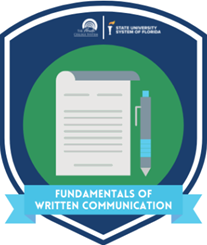Purpose of General Education
General education is the core preparation for lifelong learning. It fosters an intellectual curiosity that leads to exploration of the foundations and range of knowledge in the arts and sciences. The general education program encourages academic excellence, respect for self and others, the free exchange of ideas and responsibility to the community.
It is expected that every general education course at TCC will promote a learning environment in which students are afforded opportunities to participate actively in their learning. This is achieved through processes such as the following:
- The use of reading, writing, listening, speaking and/or other forms of self-expression
- Information gathering, synthesis and analysis for solving problems and in critical thinking (including the use of the library, electronic/computer and other resources, and quantitative reasoning and interpretation, as applicable)
- Engagement in cooperative learning, teamwork and/or use of collaboration as a problem-solving tool
- Participation in course projects, laboratory exercises and/ or service learning projects
- Class discussions
General Education Digital Badge Series (1007.25, F.S.)
The digital badge is earned by completing general education core courses, which are already built into associate in science, associate in arts and baccalaureate degree programs. Florida’s 12 state universities and 28 state colleges will automatically award the badge upon completion of the required coursework. And because the bade will appear on your FASTER transcript, it will be accepted by all institutions if you choose to transfer.
 Fundamentals of Written Communication Badge Fundamentals of Written Communication Badge
This digital badge will be awarded automatically upon completion of ENC 1101 or a course in which ENC 1101 is a prerequisite with a grade of “C” or better.
What are Fundamentals of Written Communication? (Definition)
Effective written communication is the ability to communicate ideas, information, and perspectives clearly, adapting a message to different audiences and situations, and using the appropriate style to convey meaning in various written contexts.
What is the Value of the Badge?
Florida public postsecondary institutions now offer students a Fundamentals of Written Communication digital badge. With this badge, you will be able to enhance your personal communication skills but also convey to future employers that you have acquired vital skills needed for professional success.
What are You Learning by Earning this Badge? (Student Learning Outcomes)
By completing the college course associated with this badge, you will demonstrate information literacy, comprehension of written material, and conveying information in writing for a variety of rhetorical purposes and audiences. Some of the learning outcomes associated with the college course that results in this badge include:
- Examining and analyzing written material
- Synthesizing information and ideas
- Developing content relevant to the purpose
- Demonstrating the ability to write to a specific audience
- Presenting a perspective informed by research and critical thinking
- Revising written communication based on feedback
Why is Effective Written Communication Important in the Workplace? (Career Competencies)
- Enhances an employee’s ability to interpret and evaluate a wide variety of written material
- Promotes research, critical thinking, and problem solving
- Advances the development of clearly written material relevant to the intent
- Enhances the use of appropriate language for an intended audience
- Increases the competent, effective, and responsible use of information
Associate in Arts General Education Learning Outcomes
Communications
- Students will demonstrate effective reading and writing skills by using appropriate strategies for a variety of rhetorical purposes and audiences.
Quantitative and Scientific Reasoning
- Students will identify and apply appropriate quantitative analytical methods to explain phenomena and generate effective solutions.
Critical Thinking
- Students will apply critical and creative thinking skills to analyze, evaluate, and synthesize ideas.
Global and Social Diversity
- Students will demonstrate an understanding of diverse perspectives and their influence on individual, social, historical, and political events or on cultural expression.
Information Literacy
- Students will demonstrate effective information literacy skills by locating, evaluating, and effectively and ethically using information to achieve an academic or professional purpose.
|